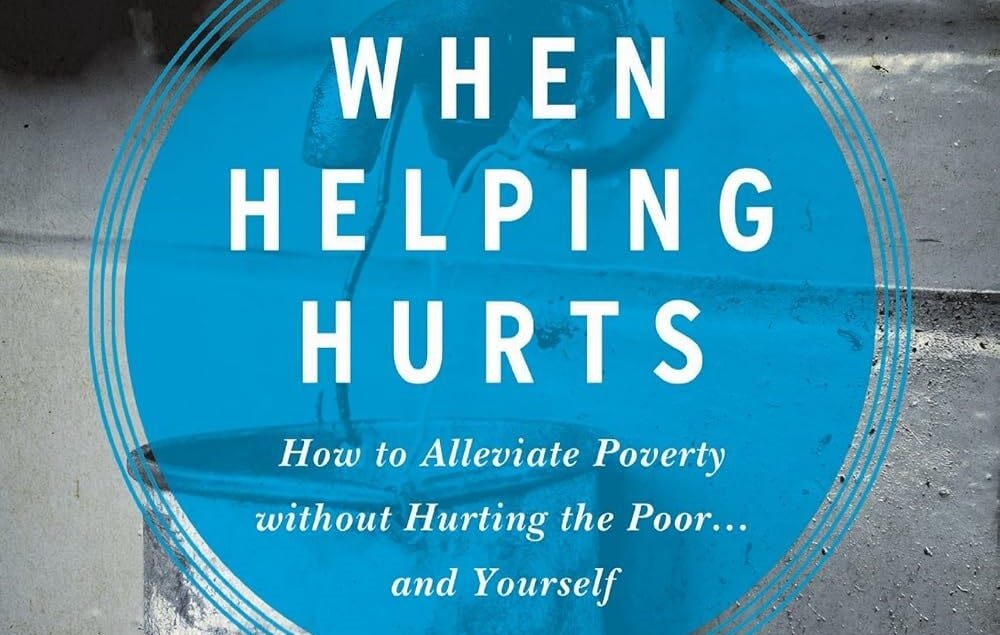When Helping Hurts
An M3 Weekly Book Review
As those who start, build, and lead missional enterprises, one of the critical but often overlooked aspects of our triple bottom line is to make a difference. Just as Jesus commanded us to love our neighbors as ourselves, we want to be good neighbors, bringing blessing to the communities we inhabit.
While much community development work is carried out by nonprofits, missional enterprises also intentionally pursue the positive transformation of their communities. Many missional entrepreneurs are driven by a vision to uplift materially poor and marginalized populations through their businesses. Yet as we engage in the important work of community development, we must face a sober reality: throughout history, many efforts — even those led by followers of Jesus — have, often unintentionally, caused harm.
Perhaps no book in recent decades has made a greater contribution to exploring this concern than When Helping Hurts: How to Alleviate Poverty Without Hurting the Poor . . . and Yourself by Steven Corbett and Brian Fikkert. While written primarily to address the efforts of nonprofits such as churches and relief and development agencies, When Helping Hurts can also be an important resource for those seeking to make a positive difference—and avoid harm—in the development and operation of missional enterprises.
Restoring Broken Relationships
The foundational premise of the book is that an inaccurate understanding of the nature of poverty has distorted our view of the materially poor and caused us to improperly craft solutions intended to help. Many in the developed world see poverty in purely economic terms—a lack of access to material goods. However, poverty, as understood from both a biblical lens and the testimonies of the materially poor themselves, is far deeper and more multifaceted. It is ultimately a symptom of broken relationships.
The authors sketch out the biblical narrative beginning with the created order, full of thriving relationships: people with God, with themselves, with other people, and with the rest of creation. Given that sin caused a breaking of these relationships, we can now properly understand both the nature of poverty (brokenness in all four of these relationships) and the goal of poverty alleviation (the restoration of these relationships).
Several key implications arise. First, we must realize that many of us in the developed world are impoverished as well—despite our relative material wealth, we too experience brokenness in our relationships. Our approach to community development must be understood as materially wealthy persons who are nonetheless broken and poor in many ways, coming alongside and walking together with the materially poor in ways that contribute to the restoration of proper relationships for both groups.
ABCD – Asset-Based Community Development
With this understanding, we are led to approach materially poor communities with a focus not primarily on their needs, but on their assets—an approach the authors call asset-based community development (ABCD). While needs are easy to see—and those needs are real—we must do the work of noticing and understanding the significant strengths of these communities and work among them and alongside them in ways that unleash these strengths to craft sustainable solutions.
Effective solutions must also involve the participation and leadership of community members themselves. The authors offer many practical suggestions for pursuing relief and development in ways that honor these principles. As missional enterprise leaders, we can do the same, employing asset-based, participatory approaches in the way we start, build, and lead businesses in needy communities. The authors even mention the business as mission movement as a potential part of the solution to the challenges of relief and development in the developing world.
Whether working in our local community or on the other side of the planet, we are called to love our neighbors—and a key part of that is to help those around us, mindful of the ways our own imperfect and even sinful perspectives can threaten to bring harm to others and even ourselves. When Helping Hurts provides both perspective and practical application to this important area. The book has been very helpful to many working in materially poor communities, and missional enterprise leaders will find its concepts thought-provoking and instructive.1
Verse of the Week:
And your ancient ruins shall be rebuilt; you shall raise up the foundations of many generations; you shall be called the repairer of the breach, the restorer of streets to dwell in. Isaiah 55:12 (ESV)
May God work through us and our enterprise to bring about the same kind of restoration he promised through the prophet Isaiah.
